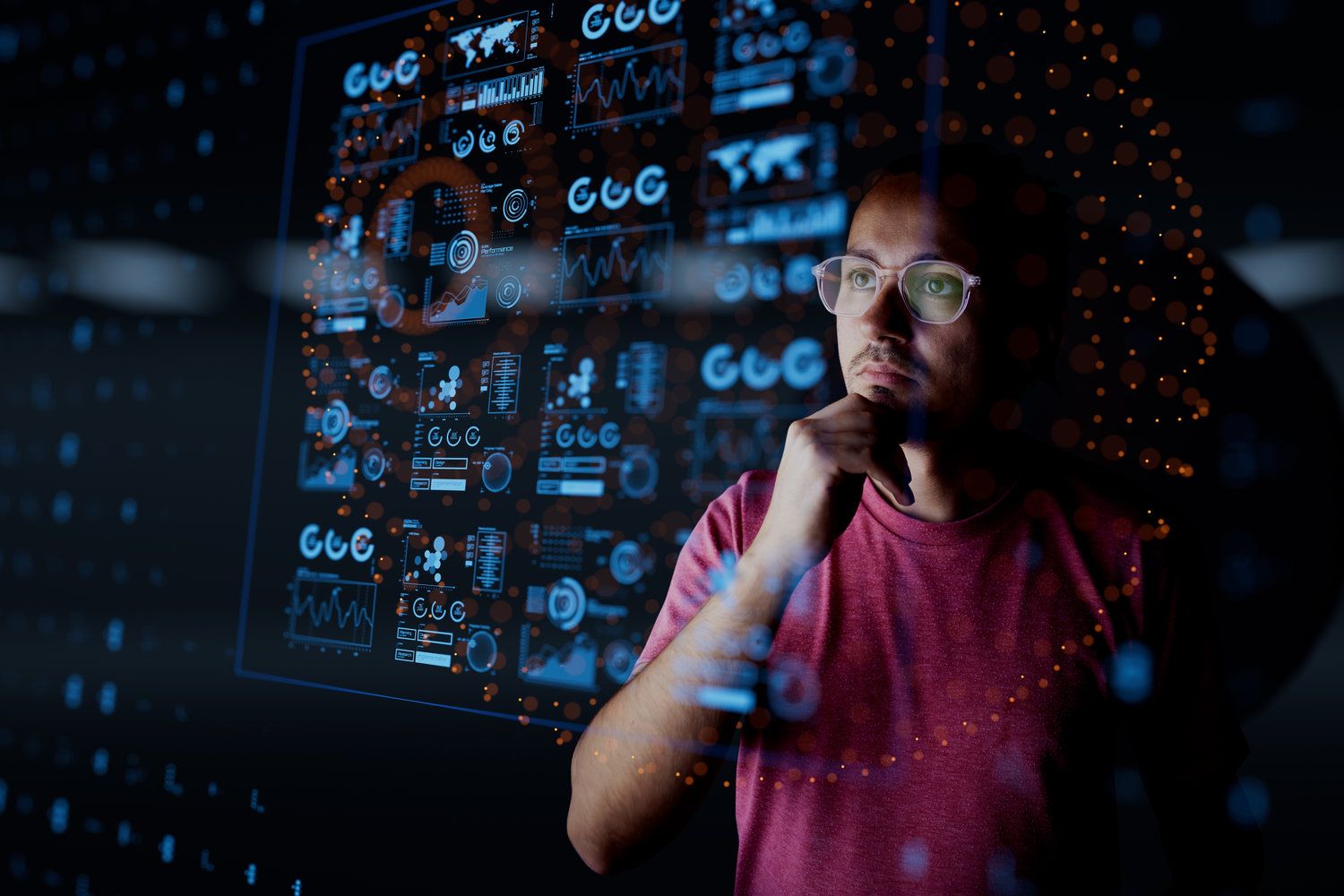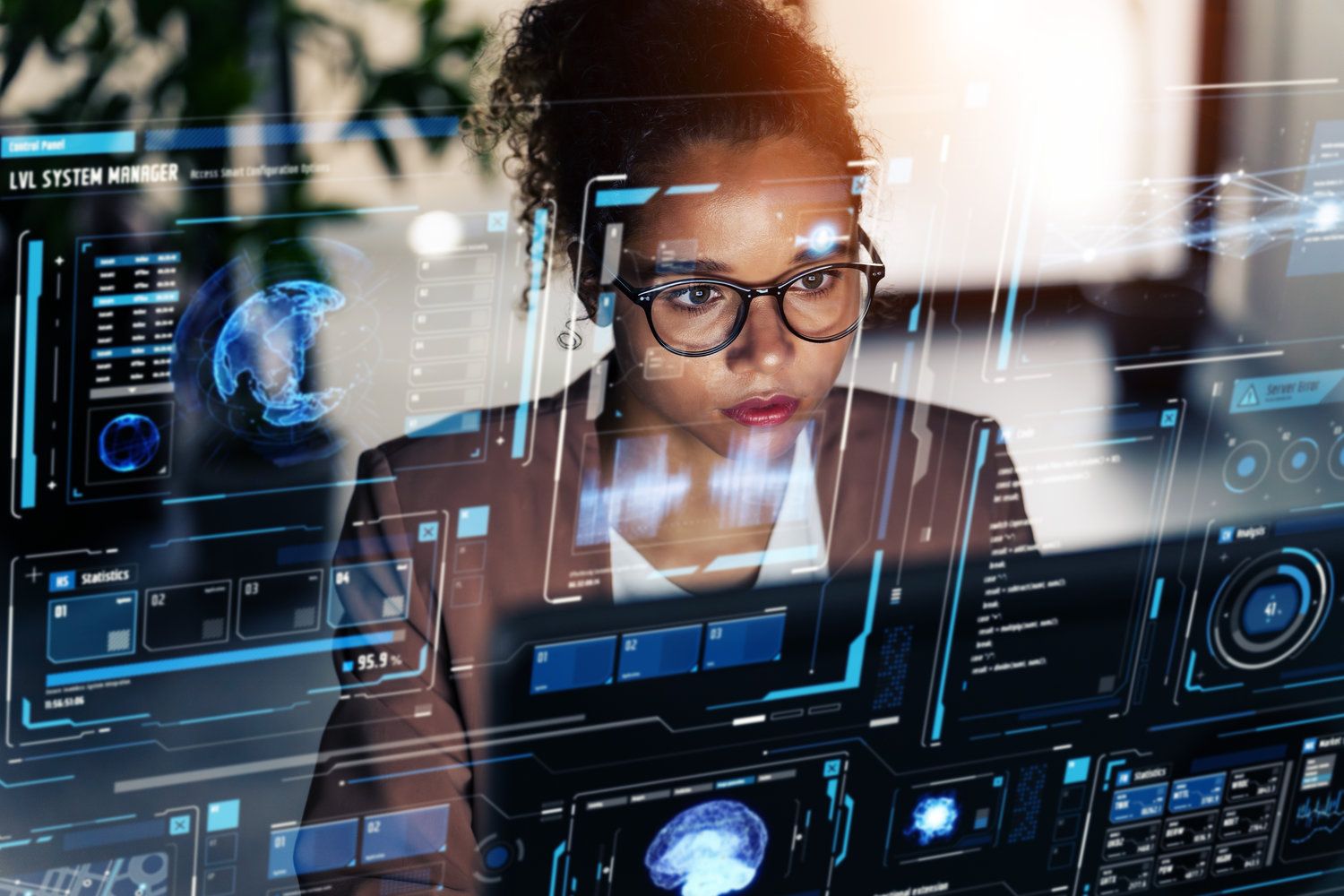Artificial intelligence is dramatically transforming cryptocurrency markets, with algorithms now driving the majority of trades in U.S. equities and crypto markets quickly following suit. From high-frequency trading firms to retail investors, market participants worldwide are adopting AI-powered tools that operate 24/7, analyze vast amounts of data, and execute complex strategies without human intervention.
What to Know:
- AI-driven algorithms now dominate cryptocurrency trading, operating around the clock to scan markets and execute strategies autonomously, accelerating a trend already established in traditional markets where algorithms handle an estimated 70% of all trades.
- Current AI trading tools range from sophisticated bots that learn from data and adapt their tactics to sentiment analysis platforms that process news and social media, with major exchanges reporting tighter spreads and improved liquidity as algorithmic market makers integrate information faster.
- Financial experts remain divided on AI's growing role, with proponents arguing it removes human emotion and bias while critics warn about potential market manipulation, decreased transparency, and the risk of "cascading negative feedback loops" if too many traders rely on similar AI models.
The speed and scope of AI adoption in financial markets has been remarkable. Generative AI tools like ChatGPT have reached nearly 40% adoption within two years of their introduction, double the early adoption rate of the internet. This technological revolution comes as algorithmic strategies have been taking over traditional markets for decades.
Crypto trading sits at the forefront of this transformation. Born in the digital era, cryptocurrency markets have been algorithm-friendly from the start. Bitcoin and other crypto assets trade non-stop across global exchanges, generating torrents of data ideal for AI analysis.
The past few years have seen an explosion of AI-driven crypto trading tools and funds. Some mirror quant algorithms long used by Wall Street firms, while others explore new frontiers like blockchain-based "AI agents" executing cross-chain strategies.

Current AI Tools and How They Reshape Crypto Trading
Cutting-edge AI tools are already available to crypto traders at all levels. Trading bots powered by machine learning have become increasingly common on major exchanges. Unlike simple rule-based bots of the past, newer AI-driven bots can learn from data and adapt their tactics. Some use deep learning to recognize complex patterns in price charts, while others leverage reinforcement learning to optimize trading decisions over time.
One class of popular tools focuses on 24/7 market analysis and signal generation. AI-based analytics platforms ingest vast amounts of information – not only price and volume data from exchanges, but also news articles, social media sentiment, blockchain transaction trends, and macroeconomic indicators.
By processing this deluge of data, AI systems aim to generate more accurate trading signals or forecasts.
High-frequency trading algorithms enhanced by AI are also making inroads in crypto. Some trading firms employ AI models to dynamically choose between different execution algorithms based on market conditions. Others use neural networks to predict order book imbalances moments ahead, allowing them to post orders that earn tiny profits from market microstructure inefficiencies.
For everyday crypto investors, a growing set of user-friendly AI trading bots and advisory tools has appeared. These range from mobile apps that use AI to manage a user's crypto portfolio to "robo-advisors" that automatically implement strategies like periodic rebalancing or risk-adjusted asset allocation.
Another intriguing development is the emergence of AI "agents" operating within decentralized finance. These are essentially smart contracts or bots that can make autonomous decisions in DeFi protocols.
For example, an AI agent might be entrusted with managing liquidity in a decentralized exchange pool – adjusting the pool's asset ratios or fee parameters based on market dynamics to maximize yield.
Underpinning many of these tools is the availability of massive data and computational power. Blockchain data provides a rich trove for AI to learn market behavior. Meanwhile, cloud computing and specialized AI chips allow even modest startups or individual developers to train sophisticated models.

Real Use Cases of AI in Crypto Trading
Evidence of AI's influence on crypto trading is emerging in real-world scenarios across global markets. Some of these use cases demonstrate clear benefits – such as greater market efficiency and new ways for investors to profit – while others expose new forms of manipulation and risk.
One prominent positive impact has been on market liquidity and price efficiency. As more algorithmic market makers and arbitrage bots have entered crypto markets, they are integrating information into prices faster and smoothing out discrepancies between trading venues. For example, on reputable exchanges, bid-ask spreads for major coins like Bitcoin have narrowed over the past few years, and instances of a coin trading at significantly different prices on two exchanges have become rarer.
AI tools have also enabled more sophisticated trading strategies that were previously difficult for individuals to execute.
Consider the realm of sentiment analysis and news trading. Specialized sentiment-tracking algorithms now parse millions of social media posts, news headlines, and even Telegram chatrooms in real time, gauging the market's emotional tone.
A concrete example occurred during the legal battle between Ripple and the U.S. SEC: when positive developments in the case hit the news in late 2023, AI-driven trading programs detected the surge in favorable XRP sentiment and buy orders flooded in faster than any manual trader could manage.
However, not all use cases are benign.
AI and algorithms have introduced new avenues for market manipulation in crypto. A case in point is the return of spoofing – an illegal tactic where a trader places a large order with no intention of executing it, solely to deceive others about supply or demand.
On April 14, 2025, a mysterious sell order for 2,500 BTC (worth about $212 million) appeared on Binance's order book at a price roughly 2% above the then-market price. The sheer size of this order caused the market to react: Bitcoin's price on Binance began gravitating upward toward that level, as other traders, possibly fearing a big sell was coming, adjusted their bids. But just as quickly, that massive order was pulled from the market without execution.
"Manipulative trading behavior is a systemic vulnerability, especially in thin, unregulated markets," observed Dr. Jan Philipp, a former European Central Bank analyst, in reference to the incident.
Another real-world use case is the mass adoption of AI by retail investors in certain markets. In China's equity markets – which share the characteristic of heavy retail participation with crypto – a locally developed AI model called DeepSeek became a sensation in early 2025. Within months, thousands of individual investors were using DeepSeek's outputs to guide their stock trades.
"The future is the digital age, and AI will be vital," proclaimed one trading class instructor in China, capturing the new optimism.
On the institutional side, crypto hedge funds and asset managers are quietly adopting AI strategies to gain an edge. Several crypto funds launched in the past year tout AI credentials. For example, the Hilbert Group, a European quant firm, announced new crypto hedge funds that leverage machine learning models for market timing and asset selection.
In DeFi, a cutting-edge use case has been automated portfolio management via AI. Protocols are emerging that allow users to deposit funds into a smart contract which an AI then manages across various yield opportunities. This concept of an on-chain "robo fund manager" is experimental but growing.
These examples collectively illustrate a landscape in flux. AI is enabling new levels of speed, scale, and complexity in crypto trading. Markets have become more efficient in many respects, but also prone to new types of rapid contagion – for instance, an algorithmic trading loop where one bot's selling triggers another's risk model to cut exposure.
Experts Weigh In
As AI-driven algorithms proliferate in crypto trading, industry experts are weighing in on the pros and cons. Perspectives vary widely, from enthusiastic endorsement of AI's potential to stark warnings about its risks. On the optimistic side, many see AI as a powerful tool to enhance trading performance and broaden market access. Proponents argue that algorithms can eliminate human biases and emotional trading mistakes, leading to more rational decision-making.
Patrick Zielbauer, Managing Director at digital asset firm BlockFills, notes that the impact of AI on trading is "undeniable" and already underway. He observes that asset managers are being introduced to AI tools designed to enhance their trading experience, allowing them to process information and manage orders with greater precision.
Supporters also point to AI's contributions to risk management and strategy execution. Hong Yangjun, a trading instructor in Shanghai, emphasizes that embracing AI is essential for the future: "The future is the digital age, and AI will be vital," he told a packed class of retail investors keen to learn algorithmic trading.
Traders like Wen Hao testify to practical benefits: "Using quantitative tools to pick stocks saves a lot of time," Wen said, noting that one can even have AI like DeepSeek "write codes" for trading strategies.
Experts with a technical bent argue that AI can handle complexity at scale that humans simply cannot. Modern crypto markets feature thousands of tokens, each with unique factors. Monitoring and analyzing all of these in real time is a superhuman task – but one tailor-made for AI.
Shifting to the cautious and critical views, a number of experts warn that AI could amplify risks and create new ones in crypto trading. Chief among concerns is the loss of transparency and human oversight.
Rohit Wad, CTO of Binance, has spoken about AI's "black box" problem, noting that opaque AI decision-making "poses considerable risks, particularly around issues of transparency, fairness and security."
The Bank of England's Financial Policy Committee delivered a stark warning in April 2025: advanced AI models with a high degree of autonomy might learn that triggering market volatility can be profitable.
"For example, models might learn that stress events increase their opportunity to make profit and so take actions actively to increase the likelihood of such events," the BoE report said.
Market stability is another major concern. Alexander McGuire, a portfolio manager, compares algorithmic trading to "turbocharging" the market engine – it can go faster, but crashes can be more severe.
Several experts underscore fairness and market integrity issues. Dr. Jan Philipp argues that clear rules are needed to prevent an AI-driven unfair advantage.
"Regulators should set the baseline... define what counts as manipulation, specify penalties and outline how platforms must respond," he told CoinDesk.
Larry Cao of FinAI Research pointed out a psychological twist: "People trust AI models more than they trust financial advisers, which is probably misplaced trust at least at this stage."
In sum, experts are split but not polar opposites in their views. Most agree that AI will play a significant role in the future of trading; the debate is how to harness it responsibly.
Closing Thoughts
The rise of AI in crypto trading marks a new chapter in the evolution of financial markets. What began as a niche experiment by quants and coders is rapidly becoming mainstream, with global implications. From Wall Street quant funds to individual traders in emerging markets, market participants are embracing algorithmic strategies powered by machine intelligence.
Yet, as with any powerful technology deployed at scale, the integration of AI into crypto finance comes with caveats.
The same algorithms that eliminate human error can also eliminate human judgment, sometimes with perilous results. The past has shown that market automation can both stabilize and destabilize – often depending on how it's managed and regulated.



